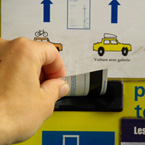 When you pay a fee at a toll booth, you might wonder where your money is going. If you do, you are not alone. Although the assessment and use of tolls varies among cities and states, toll money does a lot to help motorists like you and your community. Read on to learn more from our team at DCH Kay Honda.
When you pay a fee at a toll booth, you might wonder where your money is going. If you do, you are not alone. Although the assessment and use of tolls varies among cities and states, toll money does a lot to help motorists like you and your community. Read on to learn more from our team at DCH Kay Honda.
Road and Bridge Maintenance
Highways and bridges cost a lot to build, and toll funds can help alleviate these costs. However, motorists longing for a toll-free commute after construction will ultimately be disappointed. The expenses of operating highway infrastructure continue even after the receipt of sufficient funds to pay for them.
Salaries
Toll roads and bridges require many hands to stay safe, clean, and beautiful. These hands, however, usually come with the body of a skilled person who also needs to earn a living. Therefore, every time you hand over your hard-earned dollars at a toll booth, you can take pride in the fact that you are helping to support your friends, neighbors, and fellow citizens.
Debt
States often lack the financial resources to pay for major highway projects, so they allow toll authorities to issue debt in the form of bonds. Experts analyze the amount of debt, the amount of traffic, and payment due dates to determine the amount of a toll. If traffic volumes meet projections, the tolls pay for the projects. If not, states often must use tax money to compensate for the shortfalls.
Bureaucracy
People at every level of government involve themselves with roads and bridges and help decide how to spend toll revenue. Connecticut is one state where a longtime controversy over tolls continues to rage. Toll proponents say the state needs extra revenue to keep gasoline taxes low and to fund important highway improvements in the state. Opponents say people do not like tolls and that tolls could cause economic losses.



